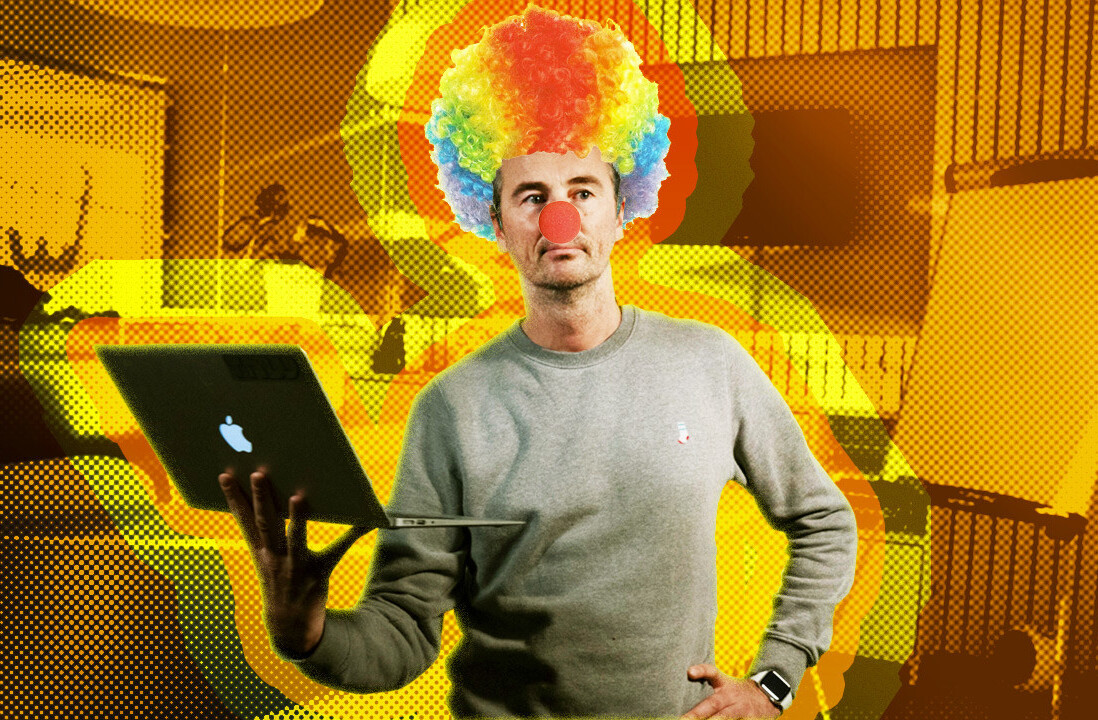
Approximately seven months ago the world of work — as most of us knew it — was turned upside down.
As offices shut down and people were sent home to work, the lines between personal and professional became increasingly blurry. Employees had to get used to this new normal but… so did employers.
[Read: 4 ridiculously easy ways you can be more eco-friendly]
Some managers have embraced the opportunity to take stock of their leadership style, making an effort to ensure their employees feel trusted and appreciated. Others are showing symptoms of micro-managing and paranoia.
And if you don’t believe me, take a look at this tweet:
This person’s employer makes them show that they’re wearing shoes before Zoom meetings to make sure they’re complying 100% with the dress code while they’re at home. SHOES. Employers, some of you have lost your way.https://t.co/TnQLyn2SSY pic.twitter.com/gPi1WeoIWi
— Ask a Manager (@AskAManager) October 14, 2020
Can you think of anything more awful, or pointless?
Aside from the obvious fact that no one on Zoom can see your feet — if they can, you might be doing video conferencing wrong — this is absolute lunacy.
[Read: ]
Several months ago (although it feels like years), I wrote a piece that looked at four things managers should avoid while their staff is working remotely.
One of the things I spoke about was how there was nothing like a crisis — such as a global pandemic — to highlight a managers’ trust issues.
Here’s the thing: we’re all adults. We don’t need to be told what to wear during a Zoom call in order to seem professional and we certainly don’t need advice on finding a quiet place to work from at home.
What we do need, though, is empathetic, trusting, and transparent leaders who will let us and encourage us to do our best work.
Why it feels like an attack

It can be easy to lose sight of the bigger picture when you’re faced with a crisis.
Yes, having to suddenly send your entire workforce to work from home can be unsettling, I get that. But just because your employees are out of sight, it doesn’t mean they’re not working.
Why would you stop trusting someone to do their job just because you can’t see them?
“Micromanaging is linked to anxiety and hyper vigilance. It is caused by anxiety and it can cause anxiety and frustration,” Olivia James, a London-based performance and confidence coach, tells me.
It’s an attempt by an employer to have control and avoid serious problems with productivity or quality of work, she adds.
The reason why it feels like an attack is because we, the employees, perceive it as a questioning of our professional integrity and competence.
“Our confidence, identity, and self-worth are linked to our pride in our work,” James explains. “This can re-activate the dynamic we may have had with a hypercritical parent, teacher, or partner — making us even more anxious.”
Why managers micromanage
As I’m an empathetic person (read control freak)I can sort of understand why some managers tend to micromanage — especially now.
COVID-19 has caused a lot of stress and uncertainty. Our health — both physical and mental — is under threat and in some instances, job security is hanging in the balance. This is exactly the type of situation where people might subconsciously drift towards micromanaging as it creates a comforting illusion for them.
“Micromanaging can be an attempt to re-establish a level of control,” James says, adding “It’s also motivated by self-preservation.”
What James means is that employers may think that by keeping a close eye on their newly remote staff they can secure their own survival within a business.
So it wouldn’t be far-fetched to say that if you’re being micromanaged, it’s likely due to your manager feeling anxious too. And if you’re a manager, make sure not to let your own insecurities affect your employees and management style.
Overall, micromanaging can have devastating effects on employee morale, staff turnover, and productivity. It sends a signal of distrust — and let me tell you, in 2020 trust is the cornerstone of survival.
Get the TNW newsletter
Get the most important tech news in your inbox each week.




